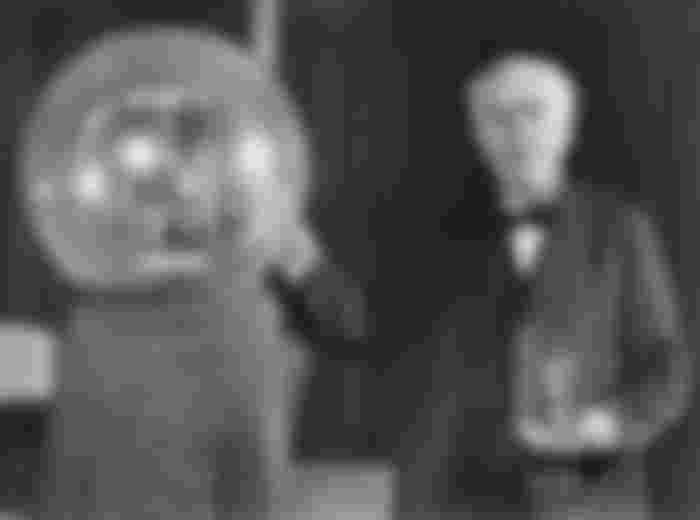What would life be like? Would we all go back to the stone age, or worse yet, to the dark ages? What would happen to our technology-driven culture without light bulbs and power outlets? Would this even be possible for us humans living in today's world of instant gratification and fast paced lifestyles? This blog post will explore these questions.
I will give a brief history of electricity and its impact on society, discuss ways we can compensate for its absence, and reflect on how this could affect the future.
The basis for modern civilization is our ability to harness energy from sources outside ourselves. In ancient times, people used animals to transport goods and humans to carry out manual labor. With the invention of the steam engine in 1698 by Thomas Savery, machines powered by coal started doing work that was once done by animals or humans. The increased efficiency of using coal-fired engines led eventually to an industrial revolution driven by coal power across Western Europe throughout most of the 19th century.
In 1881, after perfecting his light bulb for about five years, Thomas Edison built a new electric utility in New York City called the Pearl Street Station. This was a coal-fired central generating station that brought electricity to 85 customers with 400 light bulbs.

By 1882, Edison had constructed more than 160 electrical power stations around the world. The availability of electricity transformed cities into bustling metropolises overnight. People were no longer limited by where they could live or work due to the power of steam engines and waterfalls. Electricity made it possible for people to have access to an unlimited amount of energy from any source at any time of the day, anywhere on earth.
While the current way we use electricity today is pretty convenient, it has not been without its problems. In 2017 alone, there were 322 lightning strikes per second worldwide, with about 1 out of every 3 being a cloud to ground strike. This means that on average, there is a lightning strike somewhere in the world every 3 seconds. In addition to these natural disasters, there are also over one billion people who do not have any access to electricity
If we were to lose all our power sources today due to some type of cataclysmic event or a global virus attack against any kind of electronic device, life as we know it would be vastly different. Without electricity powering our homes and businesses alike, most likely things would come to a complete halt.
In this scenario, Transportation would be one of the first things affected. Without electricity powering our cars and airplanes( electric), society, as we know it today, would not exist. We have become so reliant on these types of transportation that very few people outside of professional drivers could get around without them.
If our current modes of transport were gone, then more than half the population of the world would have no means to get food or supplies from hunters and gatherers in rural areas, nor any way to bring their goods to a wider market where more people live. Cities would empty quickly, and only a small number of people who could produce their own food or grow it within walking distance would be able to survive. Once famine ensued, many more people would die.
Another thing that will likely be affected is electricity in homes. The majority of people in today's society have their own light switches and outlets where they can plug in microwaves, toasters, hairdryers for example for convenience. However, without any type of power source, these electrical appliances would not be feasible or at least very limited to what one could use them for.

To compensate for this, it would probably be smart to go back to the old ways of cooking food with wood-fired ovens, heating up water on a stovetop. Another option is having enough solar panels or other energy sources like wind turbines to power certain devices like phones and laptops when needed.
However, these sources of energy, while renewable, are still not without their own problems. For example, wind turbines need to be placed in specific locations that have a high-enough wind resource for them to work properly and produce significant amounts of electricity.
Solar panels only work during the day with the right amount of light intensity, and even then they are not 100% efficient. If someone wants to use them outside, they would need sufficient amounts of space for this purpose.
Another big factor that would be affected would be how we communicate when our sources of energy are gone, communication methods like radio and TV broadcasts would be useless. The days of the radio would be over. The days of the internet would also be gone if there was no internet access.
Without the internet, there would be no more emails, no more social media, no more forums, and no online shopping. All of these would be gone if electricity was completely unavailable.
From these scenarios, it becomes quite clear that without electricity life as we know it would be drastically different. While today's society might seem like it couldn't survive without all the conveniences of modern-day, humanity has survived throughout the years through hundreds of thousands of years with no electricity at all.
Who knows? Maybe one day we will see a renaissance in support for less technologically dependent ways of living once more people begin to realize that what many take for granted can be provided by other means than just electronics.
The Renaissance dates from 1350 to 1620 AD. It is a term used to describe a period in
European history marking the transition from the Middle Ages to modernity and covering
the 15th and 16th centuries.Thanks for Reading...Cheers!!!
Just turned this post into a video in case you don't like reading that much


I wish I could turn back time. Only those fireflies lighten the wilderness, I hope peace, serenity and the fragrance of the breeze I could only smell. Only peace deafening my bold ears. And only lights of the stars lead me the way to a world with full of hopes. Just a thought..